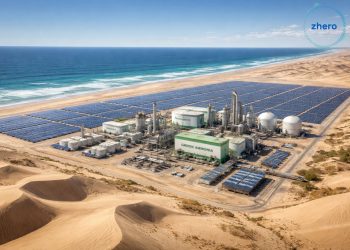
Namibia is advancing a set of regulatory reforms across the mining, oil and energy sectors aimed at increasing local participation, ensuring long-term energy security, and positioning the country for economic transformation.
In mining, the Ministry of Industries, Mines and Energy is drafting a policy to require mandatory local equity in new projects.
At the same time, legal work on mineral beneficiation is progressing, with assistance from the African Legal Support Facility of the African Development Bank.
Furthermore, early-stage discussions with the Bank of Namibia have begun to establish a national gold reserve, with a legislative framework under development to support the initiative.
“In pursuit of increased national ownership and value addition, the Ministry of Industries, Mines and Energy (MIME) has started to develop a policy on mandatory minimum percentage local equity participation in all new mining ventures,” said President Netumbo Nandi-Ndaitwah.
In oil and gas, she noted that preparatory work is under way for the development of a Namibia Oil and Gas Logistics and Supply Base to support the growing petroleum sector.
This comes as oversight of the upstream petroleum unit has been shifted to the Office of the President, and key appointments have already been made.
The country is also reviewing laws tied to this emerging sector. Benchmarking visits were conducted to Guyana, Norway and Angola to help guide legislative and technical planning.
“The Government has initiated preparatory work for the development of a Namibia Oil and Gas Logistics and Supply Base, aimed at supporting the growing petroleum sector. The upstream petroleum unit has been placed in the Office of the President, with key appointments concluded,” said Nandi-Ndaitwah.
On energy, Namibia’s Energy Compact was finalised and presented at the Africa Energy Forum in Cape Town in June 2025.
The agreement opens the door to concessional funding for national energy projects. Service level agreements were signed with seven regional electricity distributors to accelerate rural and peri-urban electrification.
Progress was also reported on several renewable energy developments, including the 20 MW Khan Solar PV grid connection and the launch of construction on the 40 MW Otjikoto Biomass and 100 MW solar PV plants.
NamPower issued bids for a 120 MW solar generation project. A 100 MW solar facility near Rosh Pinah is being implemented in partnership with KfW and NamPower, she said.
“To diversify Namibia’s energy mix, I have directed the Rt Hon Prime Minister to constitute a Nuclear Energy Taskforce comprising experts to work on a nuclear energy White Paper and other related matters, to be completed before September 2025,” said Nandi-Ndaitwah.Port infrastructure upgrades at Angra Point in Lüderitz are progressing. Three harbour cranes, valued at N$305 million, were delivered in June 2025 to improve efficiency and turnaround times.
Through the Solar Revolving Fund, over N$2.5 million was invested in renewable energy technologies. The programme also facilitated 13 grid connections in the first half of the year.







